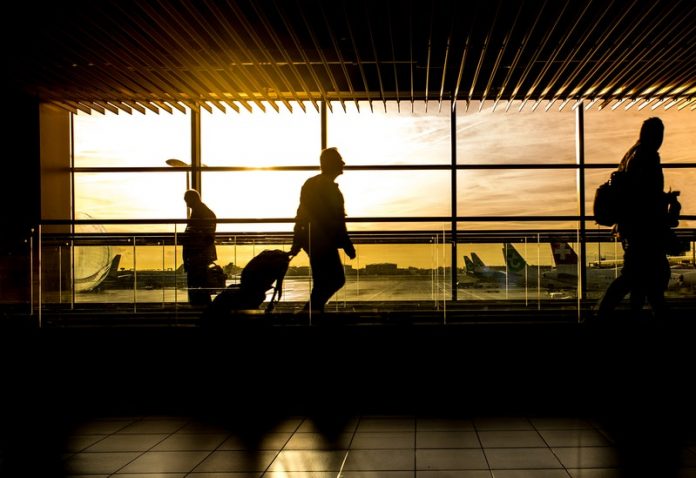
In a new study from Emory University, researchers found busy and stressful travel schedules may increase the risks of obesity, body fat percentage, and belly fat in business travelers.
These risks can lead to other conditions such as heart disease and diabetes.
In the study, the team analyzed data from 795 individuals. Participants filled out a health history questionnaire that asked about the frequency for both domestic and international business travel.
651 participants were male and 144 were female, with a mean age of 52 years. Both men and women worked an average of 53 hours a week.
Median summed travel frequency (the sum of both domestic and international travel) was six days per month, with 83% of travel is domestic travel.
Males traveled more frequently than females, and over half of the sample population did not travel internationally.
The team found that business travel has a connection with body composition metrics; those traveling most frequently had a higher body mass index, body fat percentage, and belly fat, and therefore were at the highest risk of developing chronic disease.
The team also found that the impact of business travel on body composition differed by gender.
Inadequate sleep and exercise had a more pronounced effect on body composition measures in female travelers.
These results suggest that attention to lifestyle factors that ameliorate risk for obesity and obesity-related problems, specifically exercise and adequate sleep, is important for all business travelers/participants, and of particular importance among women business travelers.
The study also found among men, international travel frequency was found to affect weight gain more than domestic travel.
The findings raise the possibility that disruption in our body’s circadian clock from time zone changes may jet lag metabolism and energy balance.
As business travelers begin to resume pre-pandemic travel routines, the new study highlights the importance of lifestyle factors while traveling for business to help maintain healthy body weight and body composition.
In addition to helping travelers get adequate sleep, exercise, and maintain their sleep-wake cycle as noted in the study, other potential ways of mitigating health risks include providing healthier eating options, ample water for hydration, and scheduled downtime for rest and reflection for stress reduction.
The study is published in the Journal of Occupational and Environmental Medicine. One author of the study is Sharon Horesh Bergquist.
Copyright © 2021 Knowridge Science Report. All rights reserved.



